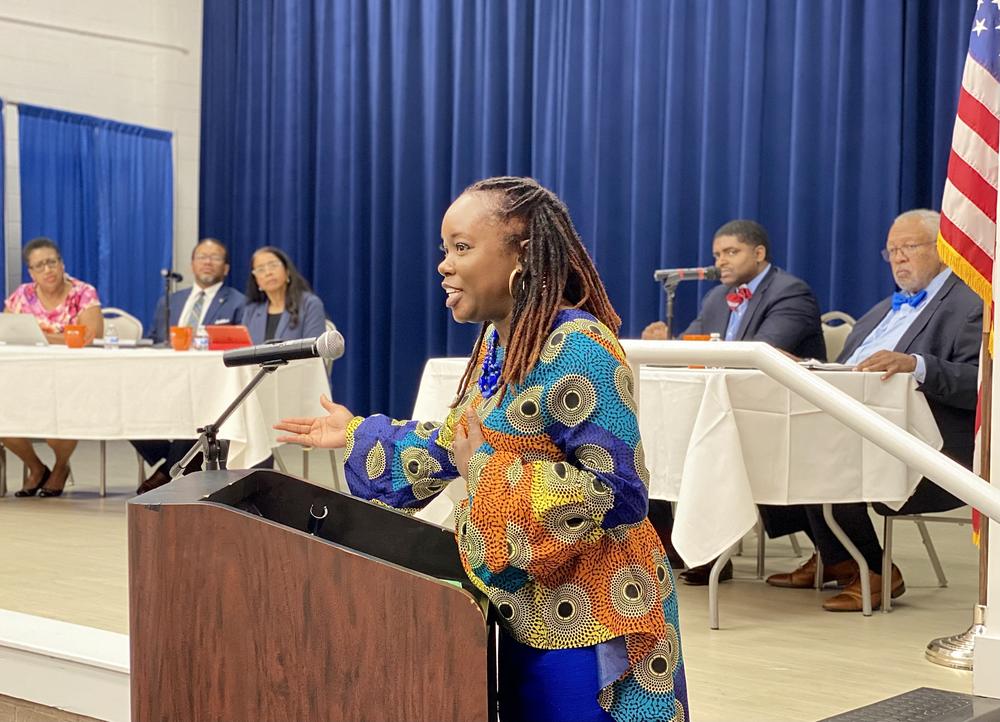
Caption
Chatham County District Attorney Shalena Cook Jones speaks during a roundtable discussion of legal issues hosted by the Georgia Legislative Black Caucus at Savannah State University on July 21, 2023.
Credit: Benjamin Payne / GPB News

